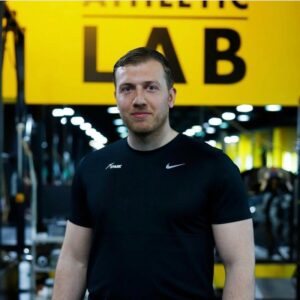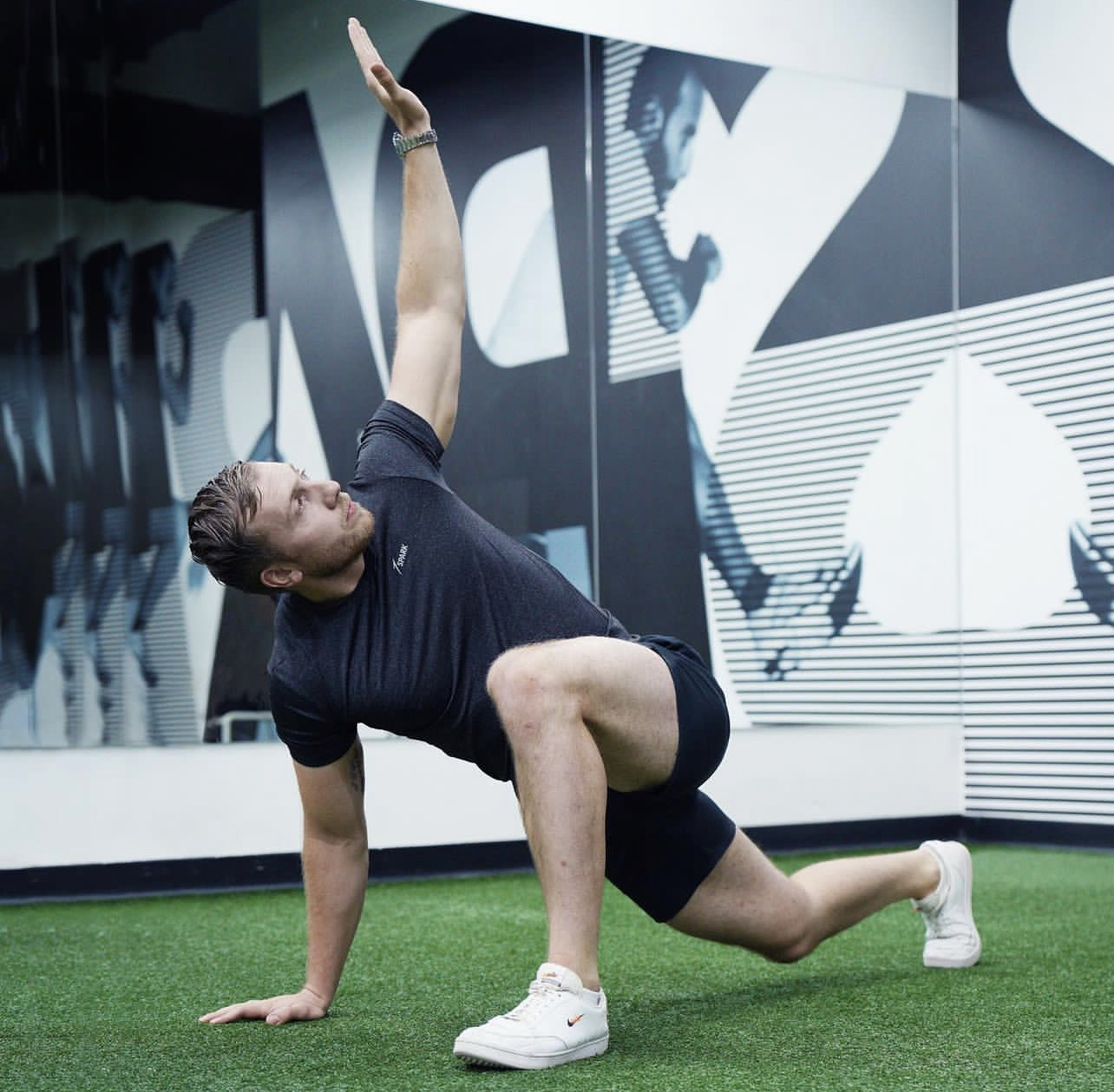Background
Performance Coach Wesley Kuijpers recently joined us as part of our student stories series. Wesley is a graduate of our BSc in Strength & Conditioning programme and is currently studying on the MSc in Performance Coaching programme. Wesley took us through how he got into the health and performance world, his own approach to coaching, the importance of educating individuals and he also gave us some advice for aspiring coaches along with an insight into his plans for the future.
Developing an Interest in Sport and Performance
From an early age, Wesley had a strong interest in health and fitness instilled in him from partaking in a number of sports.
“My interest in health and performance is inherited from my father, who is an enthusiast for resistance training and boxing. Living in a household that encouraged playing sports enticed me into practicing judo at the young age of six. Training for national competitions with relatively little external support for strength and conditioning training rendered me to educate myself on the subject, with the most significant achievement being ranked fifth in the national championships. This appeal to sports and exercise science guided me into commencing a secondary vocational programme to become a sports and movement co-ordinator.”
It was these experiences throughout his own training and education laid the foundation for his own approach to coaching.
Finding the Why Behind Coaching
One key aspect of Wesley’s coaching approach is his emphasis on the ‘why’ behind coaching decisions.
“From my perspective, the coach who questions the ”why” is the individual who can progress towards becoming an expert, although it could, according to the model, lead to slightly less confidence during the initial stages. Remember, coaching is a long-term process with ups and downs that eventually will provoke a growing interest in health and performance, just as it has done for me in the past.”
His approach involves testing, data collection and the utilising technology to tailor training programmes for each client. However, he also places an emphasis on his client’s experience.
“For me, coaching is a two-way informational stream where the client’s experience matters. We can keep track of many quantitative performance elements, like what is contained in my online data management system. However, that does not disregard the significance of the client’s subjective experience. Humans are unpredictable and often react differently than expected based on our subjective experiences and education. Yet, with a co-operative approach, we can assist the client as well as we can.”
Continuously looking for the why behind each coaching and training decisions led to further education in the world of strength and conditioning with Setanta.
 “I started with the BSc. in Strength and Conditioning because I was not content with the theoretical knowledge I’d acquired at the time about the complexities of strength and conditioning. The drive to further my educational career comes from curiosity and identifying the ”why”, as previously discussed. Accordingly, advancing towards the MSc in Performance Coaching was natural. Specifically, the pragmatic philosophy adopted by Setanta College was decisive in continuing my education journey with them.”
“I started with the BSc. in Strength and Conditioning because I was not content with the theoretical knowledge I’d acquired at the time about the complexities of strength and conditioning. The drive to further my educational career comes from curiosity and identifying the ”why”, as previously discussed. Accordingly, advancing towards the MSc in Performance Coaching was natural. Specifically, the pragmatic philosophy adopted by Setanta College was decisive in continuing my education journey with them.”
Evolving Career
Wesley has also been able to transition into education in his own career and is something he is passionate about.
“Working as Head of Education at Fit Pro Institute, it enabled me to transfer my knowledge during the weekly educational sessions I coordinated as the Head of Education in the company. In doing so, I could educate fellow coaches on various health and performance topics, which they could subsequently transfer to our clientele. The interest comes from the following observation: There is exponential growth in the amount of scientific evidence conducted within our field. However, an in-depth understanding of the topics and the practical application of this knowledge is often subjected to a significant time gap.”
Advice to Aspiring Coaches
From his experiences throughout his career, Wesley reflects on the importance of developing relationships with fellow coaches to help further your career. He highlights that opportunities in the field often arise through word-of-mouth and networking. Attending courses, conferences, and social events can be instrumental in forging connections that may open doors to new opportunities.
“It is often stated that the world is a small place, and this is especially true in the world of sports. Many job advertisements are not posted online but are spread by word of mouth. Help others, and it will undoubtedly pay off in the future as long as you invest time and resources into it. Attending courses, conferences and other social events is ideal to kickstart this networking process. In essence, opportunities are a product of proactive social behaviour!”
Looking to the Future
Looking ahead, Wesley hopes to further his educational journey and his goal to share his experience with future coaches to contribute to the development of sports and exercise science professionals.
“I want to continue the route I set out for myself a few years ago and make education a central element in my life, even more than it already is at the moment. I have invested much into my education and recently started my doctorate. By undertaking these efforts, I hope to become a part-time faculty member at a university or college to deliver sports and exercise science-related subjects. I strive for a part-time role because performance coaching is a passion I would like to set forth in the future.”
To learn more about studying Strength & Conditioning with Setanta, visit https://www.setantacollege.com/all-courses/.


Leave A Comment